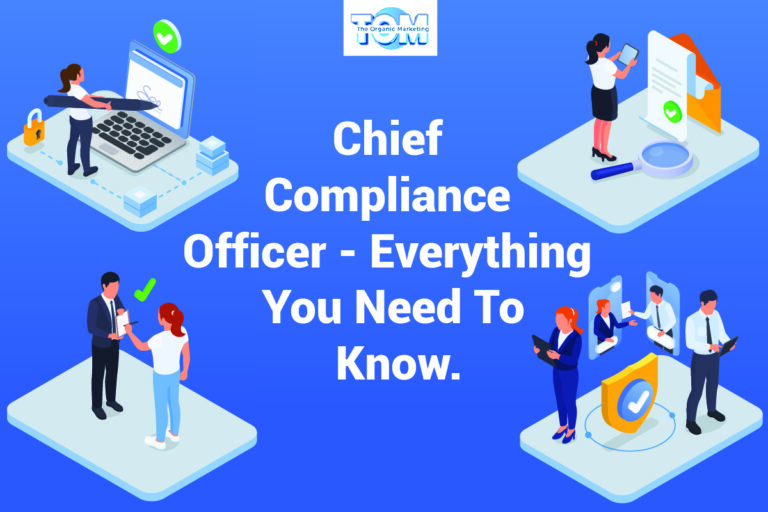Leading Digital Transformation: A Chief Technology Officer Success Guide
Organizations need visionary leaders who can navigate complicated environments and foster innovation in today’s technology-driven society. The Chief Technology Officer (CTO) provides assistance in this situation. We will go into the specifics of the CTO function in this complete guide, covering their duties, requirements, and even the average compensation of CTOs in India.
What does Chief Technology Officer (CTO) mean?
The Chief Technology Officer (CTO) is a senior executive who is in charge of an organization’s technical goals, plans, and execution. They are in charge of encouraging innovation, ensuring the organization’s technical infrastructure is effective and secure, and coordinating technology projects with business objectives. In order to find possibilities, reduce risks, and use technology for a competitive advantage, the CTO works closely with other stakeholders.
Roles/Responsibilities of CTO
Technology Policing
- Create and implement a technological roadmap that is in line with the objectives of the organization. This entails determining the organization’s present and upcoming technological requirements, as well as the resources needed to satisfy those requirements.
- Recognize new technology and assess its possible effects. This involves staying abreast of the most recent technical developments and assessing how they could be applied to enhance the organization’s goods, services, or operations.
- Integrate the organization’s overall business plan with its IT strategy. By doing this, the business can make sure that its technology investments are in line with its overall strategic goals.
Research and Innovation
- Keep up with current business trends. This involves staying up with industry news, going to conferences, and connecting with other technology professionals.
- Encourage creativity. This entails fostering an atmosphere in which workers feel at ease taking chances and experimenting with novel concepts.
- Lead efforts in research and development. This involves finding new technologies that may be applied to enhance the organization’s operations, goods, or services.
Team Management
- Create and manage effective technological teams. This involves choosing the appropriate candidates, giving them the required instruction and tools, and fostering a collaborative environment.
- Encourage a collaborative culture. This means inspiring staff members to work together on problem-solving efforts and to exchange ideas.
- Cultivate talent. As part of this, employers must provide their staff members chances to develop professionally and to contribute to society.
IT Infrastructure and Operations
- Ensure that networks, systems, and infrastructure for IT are managed. As part of this, the IT infrastructure of the company must be trustworthy, scalable, and secure.
- Determine the dangers to IT security, and take action. To prevent unauthorized access to the organization’s data and systems, security measures must be put in place.
- Make sure the IT infrastructure is scalable. This entails making plans for future expansion and ensuring that the company’s IT infrastructure can accommodate rising demand.
- Verify the IT infrastructure is reliable. To guarantee the organization’s IT systems remain accessible when needed, redundancy measures must be put in place.
Planning for Resources and Budgeting
- Develop and manage technology budgets in cooperation with other stakeholders. This involves making sure that the company’s technological investments are in line with its overarching aims.
- Effective resource allocation. This involves making sure that the IT resources of the company are utilised as effectively and efficiently as feasible.
- Maximize your technology spending. As part of this, it is important to make sure that the business is getting a return on its technological investments.
Types of CTO:
Based on their specialization and area of competence, a CTO’s function may be divided into many sorts. Typical kinds include:
- Strategic CTO: Mainly in charge of developing and carrying out technological initiatives that are in line with the overall business strategy of the company.
- Technical CTO: Concentrates on the technical aspects of technology deployment, including infrastructure, architecture, and guaranteeing optimum performance.
- Product-focused CTO: Focuses on promoting product innovation, collaborating closely with product development teams, and spotting market possibilities.
- External-facing CTO: The CTO with an external focus interacts with clients, partners, and investors to promote the company’s technological skills and build strategic alliances.
Skills and Qualifications Needed to Become CTO
Combining technological know-how, leadership skills, and commercial acumen is crucial for a CTO to succeed. Key qualifications and abilities include:
- Technical expertise: An in-depth understanding of the most recent and upcoming technologies, market trends, and prospective applications.
- Strategic thinking: The capacity to create long-term strategies, foster innovation, and integrate technological projects with corporate objectives.
- Effective leadership and communication skills: These are needed to motivate and direct teams, as well as to explain complicated concepts to a wide range of stakeholders.
- Business acumen: Knowing the organization’s market, its competitors, and how technology affects business results.
- Problem-solving and decision-making Skills: Capability to evaluate complicated problems, come to wise conclusions, and control risks.
Average Salary of CTO in India:
In India, the salary range for CTOs is fairly wide, comprising 6 lakhs to 101 lakhs annually. The exact pay that a CTO receives will depend on a variety of elements, including their experience, their talents, and the organization they work for. The company that a CTO works for has a big influence on their pay as well.
The CTO’s duties and influence will only increase as technology continues to be essential to corporate success. Aspiring technology leaders may map their course to success and significantly improve their companies by learning the complexities of the CTO job, requirements, and average compensation in India.
For more details on the role of CTO, contact The Organic Marketing now!






